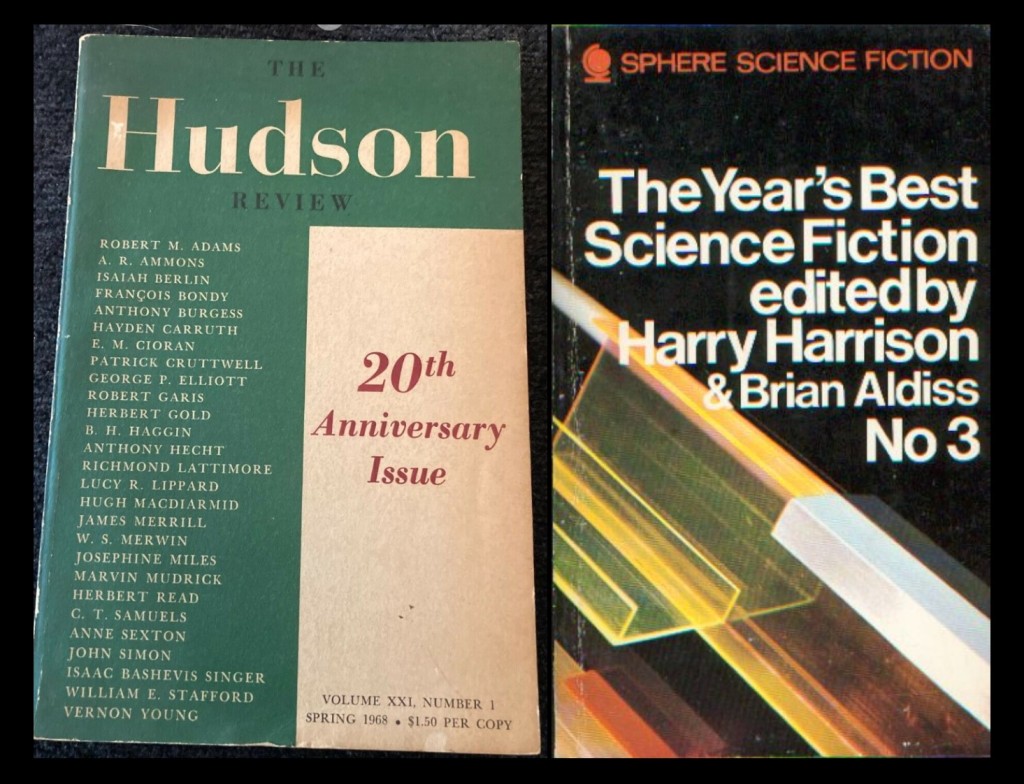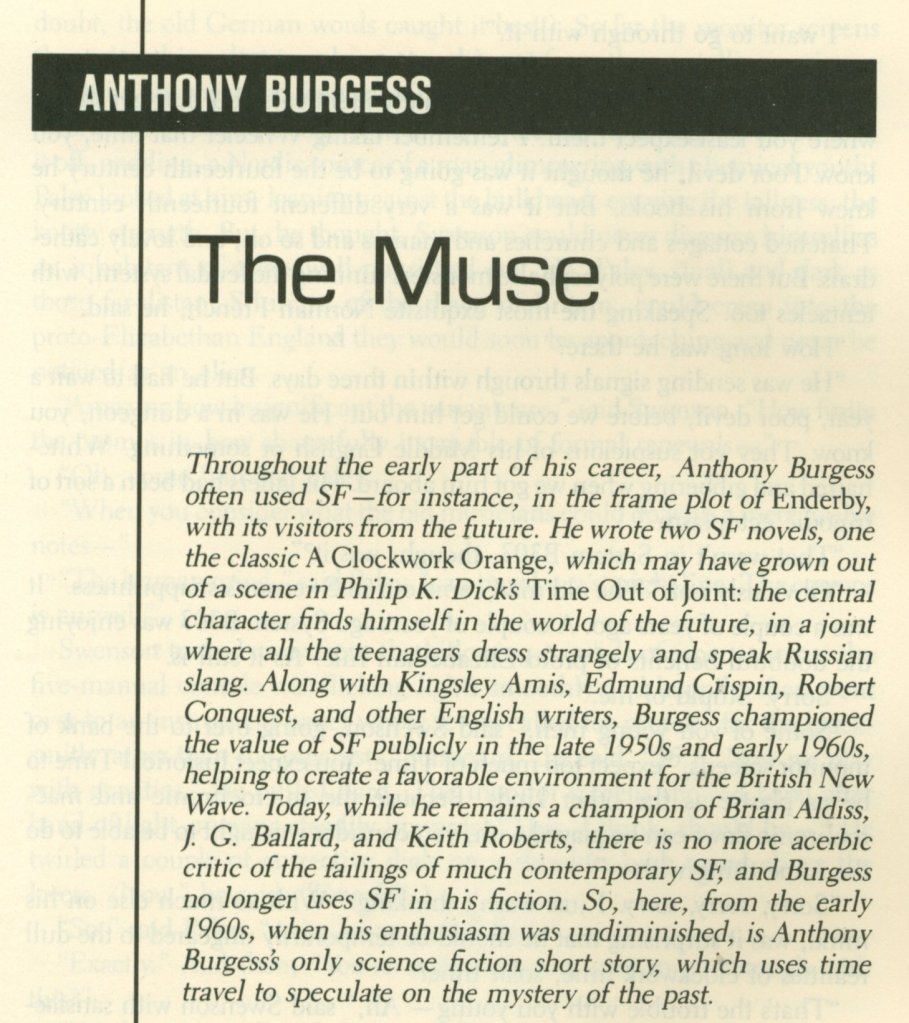
“The Muse” by Ray Anthony Burgess is story #32 of 52 from The World Treasury of Science Fiction edited by David G. Hartwell (1989), an anthology my short story club is group reading. Stories are discussed on Tuesdays, Thursdays, and Saturdays. “The Muse” was first published in The Hudson Review (Spring 1968), a literary journal. It was reprinted in Best SF: 1969 edited by Harry Harrison and Brian Aldiss.
“The Muse” is an honest-to-God science fiction story written by a literary writer. Not only that but Anthony Burgess speculates like a true science fiction writer. Burgess comes up with his own unique form of time travel. It’s a variation of the many-worlds theory, but it’s uniquely his. I was quite impressed.
In David Hartwell’s introduction, he describes Anthony Burgess’s short exploration of science fiction early in his career before giving up on the genre.

A scholar named Paley, we assume from our Earth, travels across space to a system called B303, which orbits another Earth, one very much like ours, except in their evolutionary development, they have only evolved until the time of Shakespeare. Paley is one of those people who really want to know who wrote Shakespeare.
Unfortunately, for Paley, this Earth isn’t quite like ours, and humans have a few extra eyes that give their world a nightmare quality to people from our world.
From reading “The Muse” I could sense that Burgess understood the potential of writing science fiction. And he knew he had to tell his story as if his theoretical world really existed. No pussyfooting around. No smirking and winking at the audience. No, “Look at me MA! I’m being so fucking clever.” No “I’m smarter than you, with a better education from a goddamn Ivy League school.”
Burgess looked at science fiction, saw the rules of the game, and played by those rules. He got down to our level of maturity and babbled in our lingo. I’m impressed.
I was also impressed that he went on to write mostly books that weren’t science fiction. Science fiction is a black hole for most writers. They fall in and can’t get out. Science fiction has tremendous limitations. I believe writers destroy their potential if they only write science fiction.
While you read “The Muse” pay attention to what it does, and what it can’t do. Like in the story, science fiction would be one alternate Earth, but there are an infinite number of alternate Earths where there are other things more interesting than science fiction.
James Wallace Harris, 7/18/23
“Science fiction is a black hole for most writers. They fall in and can’t get out. Science fiction has tremendous limitations. I believe writers destroy their potential if they only write science fiction.” Not sure about this. Whatever the limitations of SF, I think it’s a genre which is worthwhile in itself. I think many SF writers write out of a devotion to SF, and aren’t simply failed mainstream writers.
LikeLiked by 1 person
Carl Rosenberg: “I believe writers destroy their potential if they only write science fiction.”
Certainly, Philip K Dick’s SF in the 1960s was much better than his work of the 1950s in ways that reflected the dozen-odd unpublished mainstream novels he wrote before his return to SF. Also supporting this thesis is that Jack Vance’s novels reflect structure-wise what he learned from his (quite successful) side-career as John Holbrook Vance, mystery and crime writer; and that Samuel Delany wrote a dozen or so straight novels that couldn’t land a publisher before he sold his first SF novel.
There are other examples.
Yet there are also SF writers who would never make the grade as literary writers, but are fine SF writers on the basis of their ideas. There have also been superlative writers in the category of crime/mystery, John D. Macdonald and Donald Westlake who started out as SF writers and never did it very well.
LikeLike
Mark, to avoid any misunderstanding: the above statement, “I believe writers destroy their potential if they only write science fiction,” was Jim’s remark, not mine. I can’t quite tell if what you wrote was meant to support Jim’s remark, or take issue with it (as I did).
LikeLike